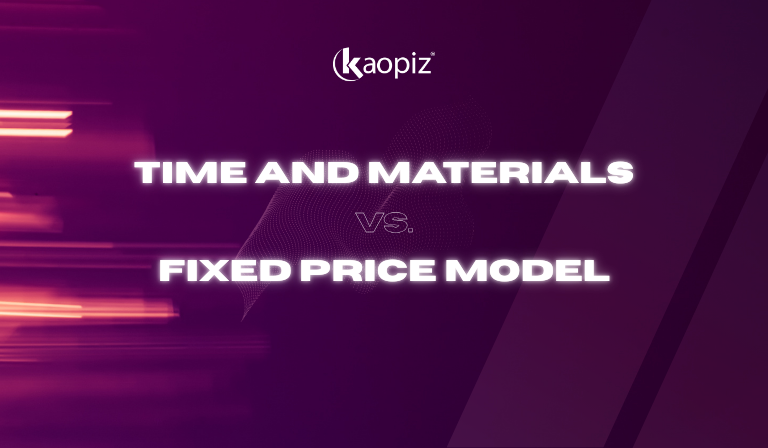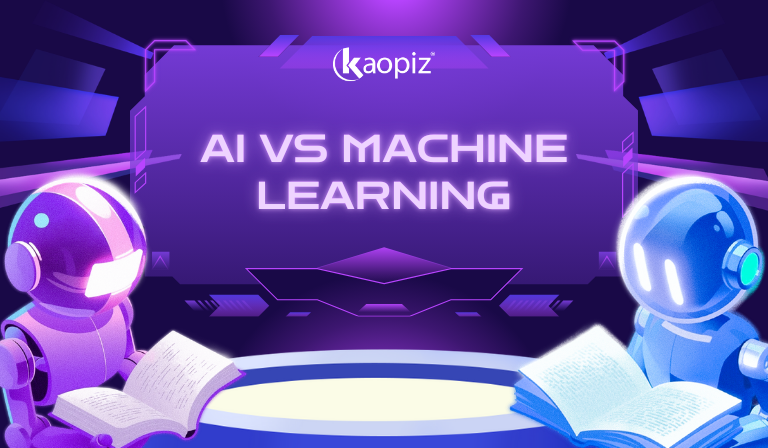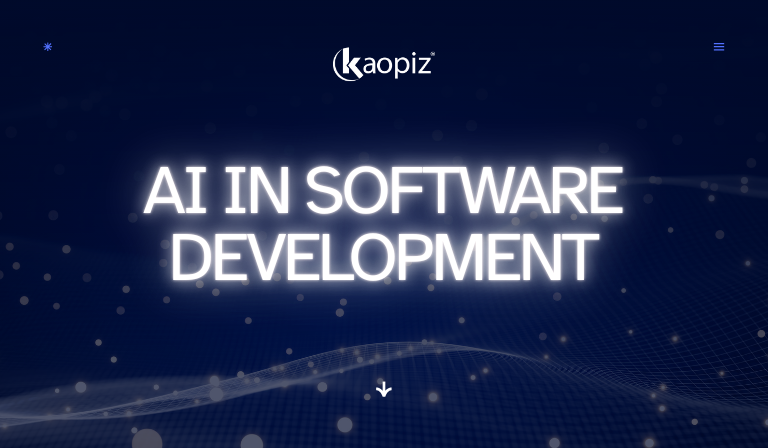Transform Your Business with Kaopiz Cloud-Based Data Warehouse Solutions
In today’s digital economy, data has become the lifeblood of successful enterprises. Organizations rely on timely, accurate, and actionable insights to drive growth, streamline operations, and make strategic decisions. However, managing massive data volumes from multiple sources can be a daunting challenge — especially with traditional, on-premises systems.That’s where the cloud-based data warehouse comes in. This modern approach revolutionizes how businesses collect, store, and analyze data — offering scalability, cost-efficiency, and real-time analytics that empower smarter business decisions.
In this blog, we explore what a cloud-based data warehouse is, how it works, its key benefits, and why it’s the cornerstone of data-driven success in 2025 and beyond.
Table of Contents
- The Rise of Cloud-Based Data Warehousing
- What Is a Cloud-Based Data Warehouse?
- Key Benefits of a Cloud-Based Data Warehouse
- Common Challenges in Traditional Data Management
- Cloud Services: The Backbone of Modern Data Warehousing
- Kaopiz: Your Trusted Partner for Cloud-Based Data Warehouse Solutions
- The Future of Cloud-Based Data Warehousing
- Conclusion
- FAQs
The Rise of Cloud-Based Data Warehousing
Traditional data systems often fail to keep up with the modern enterprise’s pace. Data is scattered across departments, analytics are slow, and infrastructure costs skyrocket as storage needs expand.
A cloud-based data warehouse solves these challenges by offering a centralized, flexible, and scalable solution. It integrates multiple data sources, supports real-time analytics, and allows businesses to access accurate insights anytime, anywhere.
According to Gartner, more than 75% of databases will be deployed or migrated to the cloud by 2026, reflecting a global shift toward cloud-first data strategies.
What Is a Cloud-Based Data Warehouse?
A cloud-based data warehouse is a centralized repository that stores and manages structured and semi-structured data using cloud computing infrastructure. Unlike on-premises data warehouses that require dedicated hardware, cloud warehouses operate virtually, making them cost-efficient, scalable, and accessible.

These systems consolidate data from multiple sources such as CRMs, ERPs, e-commerce platforms, and IoT devices, providing a single version of truth across the organization. They’re designed not for daily transaction processing but for analytics—helping businesses uncover trends, patterns, and opportunities for growth.
How It Works:
- Data Integration: Information is collected from internal and external sources.
- Transformation: Data is cleaned, formatted, and prepared for analysis.
- Storage: The cloud warehouse securely stores large datasets, with virtually unlimited scalability.
- Query and Analytics: Business users can run queries and generate reports using BI tools like Power BI, Looker, or Tableau.
The result? Seamless access to actionable insights without the limitations of traditional infrastructure.
Key Benefits of a Cloud-Based Data Warehouse
- Scalability and Flexibility: Businesses can easily scale storage and computing power as needed. Whether handling terabytes or petabytes, a cloud-based data warehouse ensures consistent performance.
- Cost Efficiency: Companies only pay for the resources they use—eliminating high upfront capital expenses associated with physical servers and maintenance.
- Speed and Real-Time Insights: Cloud-based warehouses enable lightning-fast querying and analytics. Decision-makers can generate real-time dashboards and predictive models to react swiftly to market shifts.
- Improved Collaboration: Cloud accessibility ensures teams across regions can access shared data, promoting transparency and consistency.
- Enhanced Security and Reliability: Leading platforms like AWS, Azure, and Google Cloud provide encryption, identity management, and disaster recovery to ensure data integrity.
- Integration with AI and Machine Learning: Cloud platforms integrate seamlessly with advanced analytics and AI frameworks, empowering organizations to move from descriptive to predictive intelligence.
Common Challenges in Traditional Data Management
Despite its importance, many businesses still rely on outdated, siloed data systems that limit growth. Some common issues include:
- Data Silos: Information trapped in isolated systems prevents holistic analysis.
- Scalability Limits: On-premise databases struggle to handle increasing data volumes.
- High Costs: Hardware maintenance and upgrades are expensive and time-consuming.
- Slow Reporting: Generating reports from fragmented data sources takes hours—or days.
By migrating to a cloud-based data warehouse, organizations overcome these constraints, achieving better performance, agility, and cost control.
Cloud Services: The Backbone of Modern Data Warehousing
A cloud-based data warehouse depends on robust cloud infrastructure to deliver scalability, agility, and security. Cloud services—such as AWS, Azure, and Google Cloud—provide the essential building blocks for modern data ecosystems.
Types of Cloud Services Supporting Data Warehousing:
- Software as a Service (SaaS): Offers ready-to-use analytical and visualization applications like Google Data Studio or Power BI.
- Platform as a Service (PaaS): Provides the tools and environments needed to develop custom data and analytics applications.
- Infrastructure as a Service (IaaS): Delivers virtualized computing power, storage, and networking infrastructure to host databases and manage workloads.
Together, these models enable businesses to innovate faster—without the burden of maintaining physical hardware or worrying about scalability.
Kaopiz: Your Trusted Partner for Cloud-Based Data Warehouse Solutions
At Kaopiz, we take pride in being a trusted technology partner for enterprises worldwide, helping them harness the full potential of their data. Through our data warehouse solutions, we empower organizations to modernize their infrastructure, enhance analytics capabilities, and make smarter, data-driven decisions with confidence.
Our Expertise in Cloud-Based Data Warehouse Solutions
At Kaopiz, we bring together a team of over 600 professionals with strong expertise in data architecture, engineering, and cloud platforms. We work with technologies such as AWS Redshift, Azure Synapse Analytics, and Google BigQuery to ensure scalability, reliability, and high performance.

Our engineers design systems that are secure, fast, and optimized for analytics. Whether you’re migrating legacy systems or building a new cloud-native solution, we ensure a seamless transition with minimal disruption.
Proven Success Across Global Industries
We’ve supported clients in finance, logistics, healthcare, retail, and e-commerce, helping them modernize data management and analytics capabilities. Our projects have enabled:
- Real-time dashboards that reduce reporting cycles from days to seconds.
- Automated data integration across departments.
- Predictive analytics that drive smarter business decisions.
Our clients trust us for our transparency, precision, and commitment to long-term success.
Tailored Solutions for Every Business
Every organization faces unique data challenges. That’s why we start each engagement with a detailed assessment of your existing systems, pain points, and business goals. From there, we design a customized cloud-based data warehouse that fits your operational needs and growth strategy.
End-to-End Partnership
We’re more than a service provider—we’re your technology partner. From consultation and design to deployment and optimization, we stay by your side every step of the way. We also provide ongoing monitoring, maintenance, and training to ensure sustainable performance.
How Our Cloud-Based Data Warehouse Solutions Empower Smarter Decisions
- Unified Data and Visualization: We help you consolidate data from different systems into one accessible repository. Executives can view sales, marketing, operations, and financial data in unified dashboards—making insights easy to interpret and act on.
- Real-Time Analytics and Predictive Insights: Our data pipelines are designed for real-time performance. We empower clients to detect trends instantly, anticipate demand, and make proactive decisions using AI-driven analytics.
- Future Proof Architecture for Growth: Our cloud solutions are built for scalability and innovation. We ensure your architecture evolves with your business—supporting continuous optimization and integration with emerging technologies like AI, IoT, and blockchain.
- Data Governance and Compliance: We implement robust governance frameworks to maintain accuracy, transparency, and security. From access control to compliance monitoring, our solutions keep your data protected and audit-ready.
Implementing a Cloud-Based Data Warehouse with Kaopiz
We take a structured, collaborative approach to every project:
- Assessment: We evaluate your existing systems, data sources, and business needs.
- Design: We architect scalable, secure, and efficient data solutions aligned with your goals.
- Migration: We manage end-to-end data migration with zero disruption to your operations.
- Optimization: We fine-tune performance, cost, and scalability post-deployment.
- Training and Support: We provide knowledge transfer and ongoing assistance to ensure long-term success.
Our process ensures that your data warehouse is not just a technology upgrade—but a foundation for intelligent, data-driven decision-making.
The Future of Cloud-Based Data Warehousing
As digital transformation accelerates, cloud-based data warehouses will continue to evolve—becoming more intelligent, automated, and integrated.
Emerging Trends:
- AI-Driven Automation: Data cleaning, quality checks, and anomaly detection will increasingly be managed by AI.
- Data Lakehouse Models: The convergence of data lakes and warehouses will enable unified access to all data types.
- Multi-Cloud Strategies: Organizations will adopt multiple cloud environments for flexibility and cost optimization.
- Serverless Warehousing: Platforms like Snowflake and BigQuery are redefining how storage and compute scale automatically.
At Kaopiz, we stay ahead of these trends—adapting our solutions to ensure our clients remain competitive in an ever-changing market.
Conclusion
In the digital era, data is the most valuable asset a business can own—and a cloud-based data warehouse is the key to unlocking its full potential. By leveraging cloud scalability, real-time analytics, and intelligent architecture, we help organizations transform data into strategy, innovation, and growth.
At Kaopiz, we take pride in being a trusted global partner for data modernization. Through our expertise in Data Warehouse Solutions and Cloud Services, we empower enterprises to make smarter decisions, achieve operational excellence, and build a future where data drives every success.
FAQs
- What Is a Cloud-based Data Warehouse?
- A cloud-based data warehouse is a centralized platform hosted in the cloud that stores and manages large volumes of data for analytics and reporting.
- How Does a Cloud-based Data Warehouse Differ from Traditional Systems?
- Unlike on-premise systems, cloud data warehouses offer scalability, lower costs, and easier access through the internet.
- What Are the Benefits of Using a Cloud-based Data Warehouse?
- Key benefits include real-time analytics, cost efficiency, scalability, and integration with AI tools for predictive insights.
- How Does Kaopiz Ensure Data Security in Cloud Environments?
- Kaopiz implements multi-layered security, encryption, and compliance frameworks (GDPR, ISO, SOC 2) to protect client data.
- Can Kaopiz Help Migrate My Existing Systems to a Cloud Data Warehouse?
- Yes. Kaopiz offers end-to-end migration services, from assessment and planning to deployment and post-launch optimization.
Trending Post





















No Comments yet!